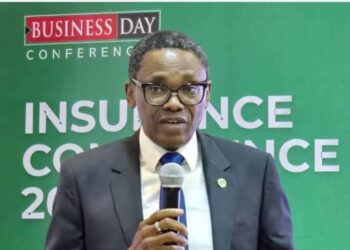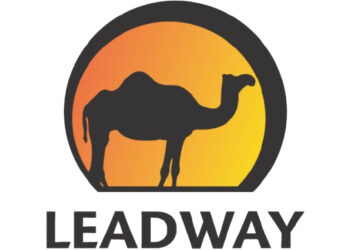In un-feigned straight from statistics delivery on the state of the economy and focused on the 2020 anticipated forecast of $1trillion economy with special attachment on the involvement of insurance and pension sectors, the MD/Chief Economist, Analysts Data Services & Resources Limited, Dr. Afolabi Olowokere, says all that the economy can muster from now to the 2030 start date will not have enough economic power to go beyond $450bn and praying that a miracle happens gather enough to come to the stand for nations in the bracket of $600bn.
Olowokere shared his statistical thoughts as the keynote speaker at the 9th edition of Nigerian Association of Insurance and Pension Editors’ (NAIPE) Conference with the theme, “Towards A $1trillion Economy, Roles of Insurance And Pension Sectors,” and straight on made government to understand that unless it put mechanisms that will align current economic realities with the expected outcome the economy will not achieve its projections because of inherent disconnects that constantly plagues the system. He said it was time to engage with the economy, reassess current policies, encourage investments, focus on infrastructure development. He pointed out savings play a critical role in economic rejuvenation, but when income is low it would lead to low savings and invariably low investments.
So far he said GDP stats is not encouraging as the country’s Gross Domestic Product grew from 2.98 per cent in the first quarter of the year to 3.19 per cent in the second quarter, the GDP is not the only point of concern of weak link he noted where the forecasts in the short to medium term remained weak; inflation and other socio-economic manifestations, such as interest rates he cleared constitute obstacles to achieving the projection.
His presentation show that “inflation rate rose from 21.82 per cent in January 2023 to 34.19 per cent in June 2024 and declined slightly to 33.40 per cent in July 2024 and further to 32.15 per cent in August 2024. “Inflation reached 32.15 per cent (YoY) in August 2024, driven mainly by food price inflation and loose financial conditions.
Viewing from IMF binoculars he said as monetary tightening continues, “IMF projects inflation would gradually decline to 24 per cent (YoY) at the end of 2024 and further to 14 per cent by 2027. The bridging responses of government he noted, would not hold down interest rates, “interest rate is expected to remain relatively high in response to inflation and economic instability.
With the retinue of disconnects sprouting he said Naira depreciation would continue, “Naira has depreciated by 71.15 per cent between January 2023 and August 2024, rising from N461/US $l to NI,598.1/US$, now around NI,650/US$. Naira will likely continue to face gradual depreciation pressures due to trade imbalances and inflation.”
Therefore managing the economy under the current setting he stated would, at best, grow the economy to around $450 billion by the projected 2030 date.
Olowookere noted that the financial and insurance sectors account for 6.57 per cent of Nigeria’s GDP, but with this low score it continue as the major driver of economic growth. “It has remained the fastest growing sector in recent time. The performance of Nigerian economy has been mixed in the last one year. The performance of the financial sector and fiscal space has been largely positive. But changes in the real sector of the economy have not been impressive.”
On insurance sector’s outlook and contribution to the GDP, he stated that the total assets in Nigeria’s insurance industry grew by 36.9 per cent in Q1 2024 from N2.4 trillion in Q1 2023 to N3.3 trillion. Non-life businesses accounted for NI.94 trillion while life businesses contributed NI.39 trillion. NAICOM sees the market as sound, stable, and profitable with a positive outlook.”
Uncovering the statistics further, he said, “The insurance uptake remains stagnant and critically low as only 3.1 per cent of adults (3.4 million) were reportedly covered by a regulated insurance policy, according to EFInA 2023 report. In addition, “The sector’s total value added in 2023 was N687.3 bn. Its contribution to GDP is less than 0.6 per cent. Its growth rate fluctuates over time, recording 13.3 per cent in Q2’24, far higher than 3.19 recorded for the entire economy.”
On the digital space, he said the adoption of digital technologies was revolutionising the way insurance products are marketed, sold, and serviced.
According to him, from online policy purchases to mobile claims processing, insurers are leveraging technology to enhance the customer experience and streamline operations.
“Insurtech companies are revolutionising the traditional insurance industry by introducing new products, streamlining processes, and reaching untapped market segments, enhancing efficiency and customer engagement. Insurers are utilising data analytics to provide personalised products and services, enhancing customer experience and loyalty through improved communication channels like chatbots and social media engagement,” he added.
Earlier in his goodwill message, the Chairman of the occasion, and a former Commissioner for Insurance, Mr Fola Daniel, commended NAIPE for economic discuss. He said: “As we gather here today, we stand at a pivotal moment in our industry, one that calls for reflection, innovation, and collaboration. Over the past decade, NAIPE has grown from a nascent idea into a formidable platform that champions a vital role in the insurance and pension sectors.
The conference attracted stakeholders in pension, insurance and retirees as well as university students and this NAIPE with content said, “Our mission has always been clear: to enhance the quality of information disseminated to the public and to foster a deeper understanding of the complexities within our industries.”







































